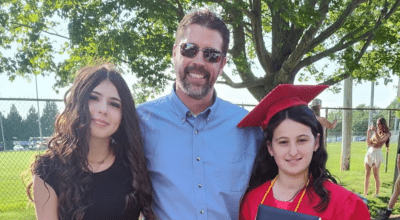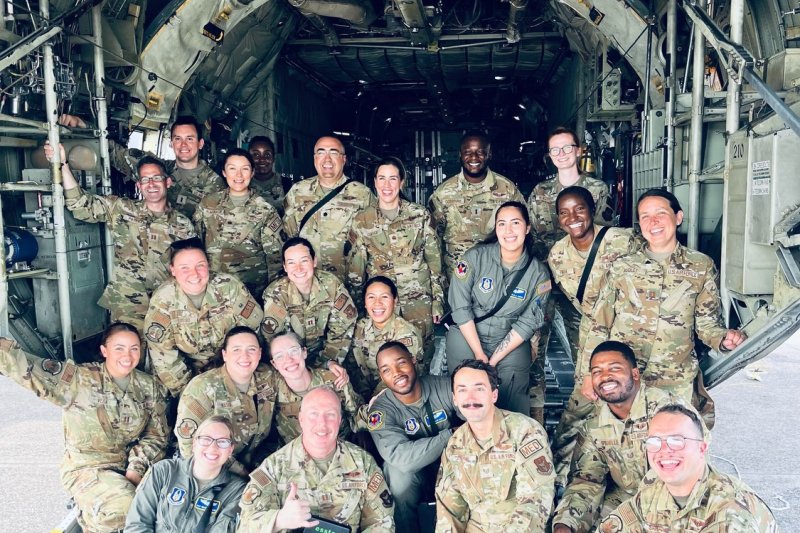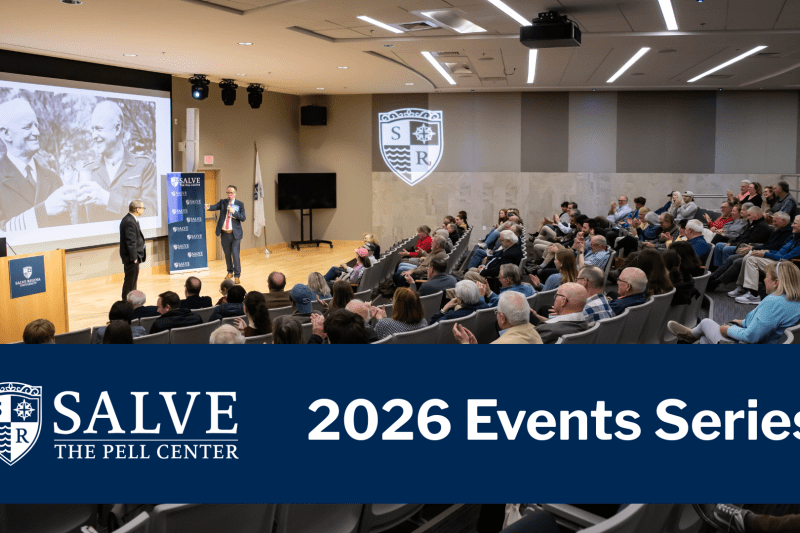
Building administrative and cyberthreat management skills to take on new challenges in health care
Salve master’s and certificate programs enable Corey Meunier ’26 (M) to make an exciting mid-career shift.

“The thing that excites me most about health care is its vast changing environment and how adaptation to change is a requirement, not an option. Advancements in information technology and AI-generated modules are at an extremely exciting time, where proficiency and efficiency are extremely important to health care. Cybersecurity will be at the forefront of protecting and allowing these advancements to continue to grow.”
Corey Meunier ’26 (M)
In 2024, the FBI’s Internet Crime Report found that the health care industry suffered more cyberthreats than any other critical infrastructure industry. As someone who had spent 30+ years working in healthcare and information technology (IT), Cory Meunier ’26 (M) was sitting at the intersection of both – and looking for his next career focus. A personal experience with a health care cybersecurity event made him curious to learn more.
He entered Salve Regina University’s master’s degree program in healthcare administration (MHA) and certificate program in cyberthreat management and response. Through guidance from faculty and a deeper understanding of the skills he already brought to the table, the path ahead sharpened. He began pursuing opportunities that matched his strengths and long-term interests, ultimately landing a clinical applications specialist role with GE Healthcare and an adjunct position at the Brown Health School of Medical Imaging before even completing the program.
We sat down with Meunier to discuss how intentional graduate study and supportive faculty can illuminate new opportunities.
Q: You’re pursuing both the MHA and the cyberthreat management and response graduate certificate. How do these programs complement each other, and why was that dual focus important to you?
A: In health care, there has been such a sharp increase in IT-related advancements and cyber events. The reality is that cybersecurity and cyber awareness are so important in protecting and maintaining health care data; the two inherently intertwine with one another. The dual focus was important to me because I was involved in a health care cybersecurity event, and the entire process just left me wanting to know and understand more.
Q: How has faculty mentorship shaped your confidence, decision-making or sense of direction?
A: I was struggling with my next career direction. I had been in radiology as a nuclear medicine technologist for 22 years and was an IT professional for another 15, and was just not satisfied with what I wanted to do for the next 20+ years. I took a cybersecurity class with adjunct business and economics professor Matthew McMahon, and at the end of the semester asked for a bit of advice from him as I was thinking about making the jump to a cybersecurity career. He was happy to get on a call with me as we spoke for about 45 minutes about various things, including careers, family and past experiences. His recommendations after that conversation inspired me to look outside the box and search for positions that just interested me and had the confidence in me with my diverse background that I would find a position I enjoyed.
I believe that having a faculty who has a strong background in my related fields of study, with an understanding of the real world, its trends and what students will need to do to help them prepare for the workforce, is extremely important. It's motivating and inspirational.
Q: Has there been a course or project that has made the biggest impact on your skill development so far?
A: The first course I took was with adjunct business and economics professor Jacqueline Kelley, HCA542: Cybersecurity & Healthcare Law. I had been so used to being on the clinical and technical end of the health care world, and this class allowed me to see an insight into a completely different world of health care that people just do not see daily.
Q: How does Salve’s emphasis on leadership, ethics and mission-driven education translate into real-world health care environments?
A: The values that Salve emphasizes are important in the health care environment because health care leaders inspire others to do the best for their patients, regardless of their roles. In the health care world, performing our duties ethically is essential to the proper care of patients, and mission-driven health care, just like education, is the quintessential base for where things begin.
Q: You’re also now an adjunct professor at Brown Health School of Medical Imaging. How has your graduate education influenced your teaching and approach to mentoring students?
A: My graduate education at Salve will help me inspire students in a supportive role, so that they can feel a sense of what they are doing in education is a great sense of accomplishment for what they want to do in life, and that it should always just be a stepping stone to their next stop in their career.
Q: What would you tell a prospective student who is considering an MHA but feels unsure about taking the leap, much like you once did?
A: I was wrestling between Salve’s MBA and MHA programs at the time because a few colleagues felt the MBA program was a more versatile fit for advanced-level health care positions, But the MHA program made me realize I was not searching for a business focus in higher education, but rather a program that I was comfortable in as a health care employee.
I would tell them that utilizing the MHA program at Salve would be a smart and important decision in their career, and I encourage them to never stop learning. There may be times when it would seem overwhelming and too much, but just picturing themselves on stage graduating, knowing the journey they took would be satisfying.



